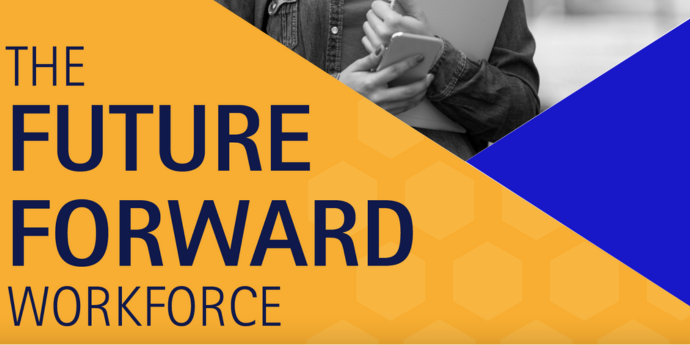Some labour analysts are predicting that remote working is likely to become a permanent feature in South Africa. It’s natural under these circumstances to feel some concern about building relationships and influence within organisations without that human connection.
So, how can graduates entering the workforce in the midst of a global pandemic, position themselves to make connections and create impact in order to ensure career mobility or enhance their employability?
These guidelines can help you to maintain an optimistic approach and to turn the new normal to your advantage.
1. Find new ways to build connection
Our traditional ways of connecting have changed considerably over the past few months. Zoom, and others, may have emerged to plug the gap, but there’s a risk of virtual interactions becoming transactional rather than relational, so you have to work harder to find common ground. It’s worth remembering that we are all still human, even if we are interacting through a computer screen, and we all respond to kindness and compassion. So go out of your way to demonstrate these qualities through simple acts like asking how others are doing before jumping to business.
Trust is another key component of relationship building. A recent Forbes article lists three qualities for building professional relationships online: transparency, likeability, and credibility. When people are transparent, they allow people to get to know them, by being likeable, people will be interested in them, and credibility ultimately builds trust.
You can incorporate these qualities into your daily interactions online by doing simple things such as showing up on time for virtual meetings, respecting people’s time, being well presented, and displaying an interest in others and how you might help them. By placing relationships first, you can build trust, but it requires being more deliberate about how you engage and the message you want to convey.
2. Build self-awareness
It’s easy to become enveloped in negative self-talk and self-doubt, especially when faced with a challenging situation and this can be magnified when working in isolation. But you can’t create meaningful impact in the world with a defeatist mindset. To produce tangible real-world impact, you need to be aware of your capabilities and how you can leverage them to be more impactful.
According to a 2018 study by global management consultancy firm, Korn Ferry, self-awareness is an essential characteristic of career success and improved executive leadership. Many recent graduates are placed in situations where they’re required to assume a leadership role within an organisation, and self-awareness is a tool that can help improve their leadership and overall career success.
Self-awareness can be built in a number of ways. For example, through an online reflection tool, a structured process of reflection, or through a coaching relationship. It can also be helpful to review your career to date. Look at the high points and low points, and from this, explore your values, the skills you’ve used, and problems you’ve solved. This gives you an idea of which mindsets and behavioural patterns you would like to continue and those you wish to end. When people take stock of themselves, they identify their strengths and how these strengths have contributed to their success and how to use them going forward.
3. Form positive habits to help rewire your brain
The human brain is a fascinating organ that processes thoughts, habits and feelings, and makes neural connections based on those factors. The good news is that the science of neuroplasticity is clear that this process of making new neural connections gives us a certain amount of influence over the direction that our brains can take. According to the South African College of Applied Psychology, we account for 40% of our happiness and feelings. By training our brains to make positive patterns more automatic, we can harness its incredible plasticity and actually alter it structurally to lessen its natural tendency to spot the negatives.
While it’s difficult to break neural connections it is easier to make new ones because the brain is a connection machine. Instead of trying to break that negative connection, encourage more helpful, positive habits and start noticing when you are doing things well.
The brain contains approximately 100 billion neurons, which connect with the rest of the body and are responsible for optimal body function. When people change elements such as their thoughts, feelings and habits, they can adopt more healthy patterns, and this effectively rewires the brain. One way to achieve this is by adopting a growth mindset. A growth mindset centres around seeing possibilities, identifying setbacks as a learning opportunity, and believing that your skills and abilities can be improved with determination.
4. Leverage opportunities and tap into your network
As an alumnus of the UCT GSB, there are numerous opportunities you can leverage, such as the UCT GSB online mentorship portal, and the Solution Space, which caters specifically to high-impact early-startups, corporate innovation, and entrepreneurship development and research. There’s an array of resources you can tap into, whether you’re wanting to pitch a business idea or looking for an investor. Be strategic with networking by mapping key influencers in industries, organisations or fields that you care about and be deliberate about what you want to convey and how your network can help you realise your goals.
Veronica Royston is a leadership coach, business psychologist and associate coach to UCT GSB MBA and EMBA students and alumni.







































